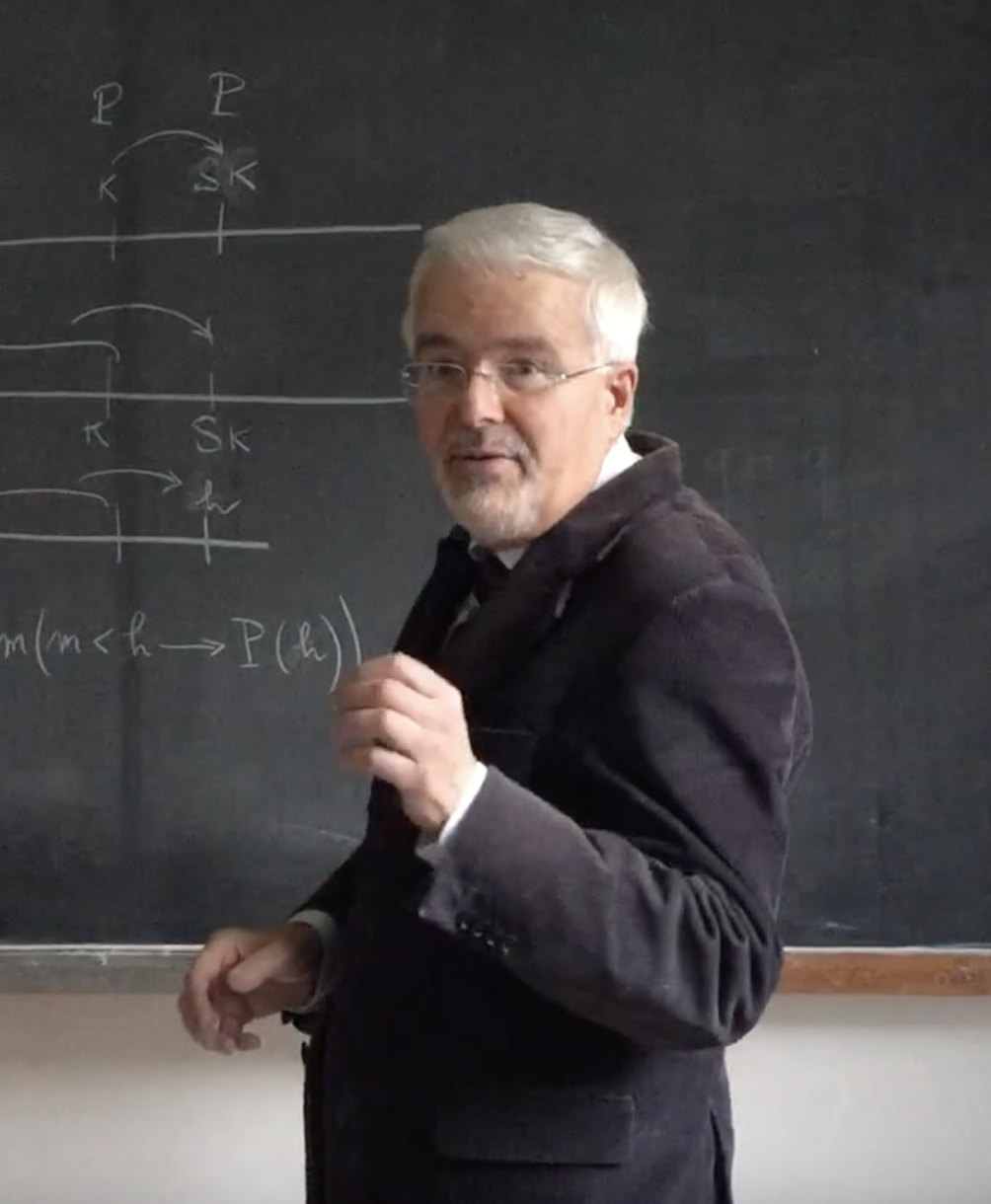Felix Klein Award 2024
 It is with great pleasure that the ICMI Awards Committee announces that the Felix Klein Medal for 2024 is awarded to Professor Ferdinando Arzarello, Professor Emeritus of the University of Turin, Italy, in recognition of his more than forty years of sustained, consistent, and outstanding achievements in mathematics education research and development. Professor Arzarello’s work has been broad in theoretical and practical scope, encompassing work that provides a basis for synthesizing major theoretical ideas while at the same time being aimed at, and having, a significant impact on the research and teaching of mathematics. It has been deep and rigorous, with his broad perspective being grounded in detailed analytic studies. His work is distinguished by broad collaborations, including with teachers, and by the ways in which he seeks theoretical groundings for empirical studies.
It is with great pleasure that the ICMI Awards Committee announces that the Felix Klein Medal for 2024 is awarded to Professor Ferdinando Arzarello, Professor Emeritus of the University of Turin, Italy, in recognition of his more than forty years of sustained, consistent, and outstanding achievements in mathematics education research and development. Professor Arzarello’s work has been broad in theoretical and practical scope, encompassing work that provides a basis for synthesizing major theoretical ideas while at the same time being aimed at, and having, a significant impact on the research and teaching of mathematics. It has been deep and rigorous, with his broad perspective being grounded in detailed analytic studies. His work is distinguished by broad collaborations, including with teachers, and by the ways in which he seeks theoretical groundings for empirical studies.
Arzarello’s theorizing has been multifaceted, expanding the boundaries of what is understood to be “mathematical” and then building on those ideas in instruction. In his ICME-10 plenary lecture in 2004, for example, beginning with the meaning of the mathematical objects in the classroom, he introduced the idea of the “cognitive space of Action, Production and Communication (APC-space)” to frame how these meanings emerge and evolve in students with the help of the teacher. The components of the APC space, as he says in the paper, are the body, the physical world, and the cultural environment, namely the role of the perceptual experiences and the interaction with the environment are put into relation with the cultural dimension. The title 'Mathematical landscapes and their inhabitants: perceptions, languages, theories' also reflects the tension that arises from students' phenomenological perception of mathematical processes and mathematics as a theoretical corpus embedded in a cultural dimension.
Arzarello’s research and development work on geometry teaching and learning contributed to and then profited from these theoretical understandings, as well as their evolving goals and potential, as technological artifacts became available and they themselves evolved. Early studies of student work using Cabri Geometry software highlighted the semiotic grounding of developing understandings, and the abductive character of reasoning in the domain. This is a key understanding, in that “proof” in school has often been approached as a purely deductive topic, as opposed to the back-and-forth between induction and deduction that accurately characterizes the development of mathematical understanding. Indeed, geometric objects and their properties became more apparent during students’ manipulations of them, with increasingly sophisticated technologies. Arzarello and his colleagues produced both refined characterizations of the processes of abduction in the domain, and instructional materials to support their development. In his more recent work, he highlights the subtle interplay between tool use and mathematical meaning making in his notion of semiotic bundles.
Arzarello’s role in the development and implementation of networking theories must also be noted. In mathematics education, many research studies conducted in the same topic domain turn out to be incommensurate – with different specification of variables (e.g., instructional materials and practices) and outcome measures, for example, it has been difficult for the field to build robust cumulative understandings. He was one of the founding members of the Bremen Networking Theories Group, a group of researchers that worked (largely with video data and other artifacts he provided) to find ways to network studies. Arzarello and colleagues developed a landscape of networking strategies that constitute a reference point for much subsequent research.
Along with his engagement in scientific research, Ferdinando Arzarello has played significant institutional and leadership roles in mathematics education. The positions he has held reflect not only the respect of the community; they serve as documentation of the enormous amount of time and energy he has devoted to expended for the benefit of the community. His institutional engagement is impressive at the local, national, and international levels. At the local level, he directed the Department of Mathematics, the Specialization School for Teachers in Piedmont, and the Doctorate School in Mathematics in the University of Torino. At the national level, Ferdinando is considered to be one of the founding fathers of modern mathematics education in Italy. His activity and influence led to the first PhD program for Mathematics Education in the country (in 2002); he was the President of the Commission for the teaching of mathematics inside the Italian Mathematical Union. Beyond this, his service to the mathematics education community has been truly international and influential, for example in his roles as ERME and ICMI Presidents. During his ICMI term he worked to improve inclusiveness in research, for example in having ICMI publications, specifically those related to ICMI Studies and the CANP activities, available as open access publications; and in creating the Emma Castelnuovo ICMI Award, which recognizes the importance of the practice dimension in mathematics education research.
In summary, Ferdinando Arzarello is an eminently worthy recipient of the Felix Klein Medal for 2024.